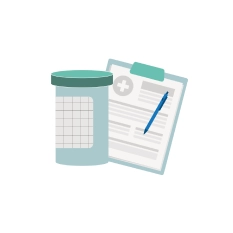Irritable bowel syndrome is a very common disorder that affects the large intestine. If you have IBS, your symptoms might be making it difficult for you to engage in social settings or to be productive at work. Though you might be feeling frustrated or uncomfortable, there are a lot of ways that a healthcare provider can help you address IBS.
Irritable Bowel Syndrome (IBS)
What is irritable bowel syndrome?
What are the symptoms of IBS?
How do you treat IBS?
What should you eat if you have IBS?
Irritable bowel syndrome is a very common disorder that affects the large intestine. If you have IBS, your symptoms might be making it difficult for you to engage in social settings or to be productive at work. Though you might be feeling frustrated or uncomfortable, there are a lot of ways that a healthcare provider can help you address IBS.
People who have IBS may experience a range of symptoms, which include abdominal pain, cramping and bloating. Others include diarrhea, constipation, excessive gas and increased urgency to go to the bathroom.
Diagnosing IBS is usually done by ruling out other conditions that can cause similar symptoms. Although there is no diagnostic test that can be taken for IBS, a doctor may order routine blood tests or give you a physical exam to make sure that you don’t have another explanation for your symptoms.
If you have IBS, it’s important to eat foods that will likely have a positive effect on your digestive system. These include lean meats, eggs, almonds, walnuts, pecans, and pumpkin and sunflower seeds.
How Included Health can help

Steps to relieve symptoms
- Increase fiber intake
- Exercise regularly
- Stress management, if IBS is stress related
- Talk to a doctor for the best course of treatment


